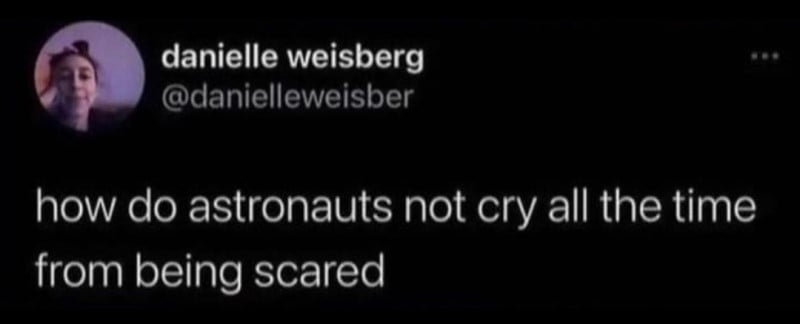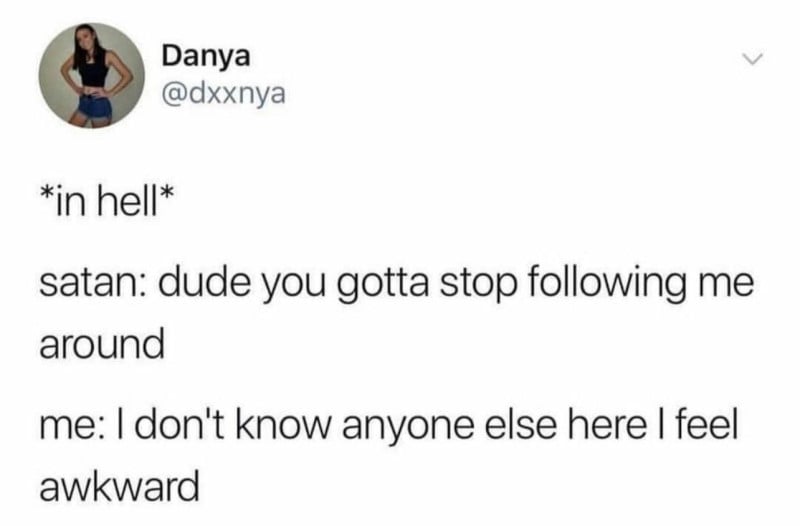nothing here but deep AI panic
issue 222 - 11th June, 2023
CJW: Welcome back.
If you want to support us, you’ve got a couple of options:
Both give you access to the full bonus archive, as well as new bonuses as they are posted. Another thing you can do to help spread the word is forward this email to someone you think might enjoy it.
Let's get stuck in then.
The Team
Daniel Harvey (DCH) - Designer, writer, provocateur. Pro-guillotine tech critic. @dancharvey
Marlee Jane Ward (MJW) - is also Mia Walsch. Writer, apocalypse witch, goth aunt.
Corey J. White (CJW) - Author, sin-eater, future sweetie-pie.
Lidia Zuin (LZ) - Journalist, MA in semiotics, and PhD in Arts. Sci-fi writer, futurology researcher and essayist. @lidiazuin
Climate Change & The Environment
CJW: There’s a deeper problem hiding beneath global warming - Mark Buchanan at Aeon
Avoiding or delaying deep warming will involve slowing the rise of our waste heat, which means restricting the amount of energy we use and also choosing energy sources that exacerbate the problem as little as possible. Unlike the energy from fossil fuels or nuclear power, which add to our waste energy burden, renewable energy sources intercept energy that is already on its way to Earth, rather than producing additional waste heat. In this sense, the deep warming problem is another reason to pursue renewable energy sources such as solar or wind rather than alternatives such as nuclear fusion, fission or even geothermal power. If we derive energy from any of these sources, we’re unleashing new flows of energy into the Earth system without making a compensating reduction. As a result, all such sources will add to the waste heat problem. However, if renewable sources of energy are deployed correctly, they need not add to our deposition of waste heat in the environment. By using this energy, we produce no more waste heat than would have been created by sunlight in the first place.
This is a great read on deep warming - something I'd not come across before. The idea is simple (so simple I'm surprised it took as long for it to occur to someone): all of our energy usage creates waste heat, and as our energy usage continues to escalate even as we find efficiencies, that waste heat will eventually have a global climate impact akin to greenhouse gas related climate change today. So even if we adapt in time to mitigate the worst excesses of climate change, there's likely another CC event in waiting unless we rethink energy production and usage.
//
DCH: We Now Know the Full Extent of Obama’s Disastrous Apathy Toward The Climate Crisis
It became clear early on in Obama’s presidency, McKibben says, that the administration felt it only had enough “political capital” to deal with healthcare, and so climate change fell by the wayside. “I don’t think there was any real hope that we were going to see significant climate action out of at least the first-term Obama administration,” McKibben says. Frances Beinecke of the National Resources Defense Council says that “We wanted climate to be on a par, and it wasn’t,” citing a relative lack of White House effort on even weak clean energy legislation. In his interview for the project, former Energy Secretary Steven Chu confirms that “a decision was made in the first year to concentrate on healthcare. At which the president took me aside and said, ‘Look, I know I said energy and healthcare, but next year; energy is next.’” McKibben explains why this approach of kicking the can down the road on climate was so infuriating to those who understood the nature of the problem.
How utterly feckless.
//
Finally, a solution to plastic pollution that’s not just recycling: “This treaty could be huge. Although it will take months of negotiating for any of the details to become clear, the agreement — set to be finalized by the end of 2024 — will require countries to do far more than just fix their recycling systems. Negotiators will discuss a menu of options including a cap on overall plastic production, bans on certain materials and products including many single-use plastics, and incentives to grow an industry around reusable items. This treaty could literally transform entire chunks of the global economy.”
‘It’s like a death pit’: how Ghana became fast fashion’s dumping ground: "Ghana imports about 15m items of secondhand clothing each week, known locally as obroni wawu or “dead white man’s clothes”. In 2021, Ghana imported $214m (£171m) of used clothes, making it the world’s biggest importer.
Geopolitics & Empire
CJW: Why Are We in Ukraine? - Benjamin Schwarz, Christopher Layne at Harper's (via APH)
To be sure, any power imposing a sphere of influence is necessarily behaving in an implicitly aggressive manner. For a power to define an area outside its borders and impose limits on the sovereignty of the states within that area is contrary to the Wilsonian ideals that the United States has professed since 1917. In one of his last speeches as vice president, in 2017, Biden condemned Russia for “working with every tool available to them to . . . return to a politics defined by spheres of influence” and for “seek[ing] a return to a world where the strong impose their will . . . while weaker neighbors fall in line.” Because of America’s commitment to a just and moral world order, Biden insisted, quoting his own words from the Munich Security Conference in 2009, “we will not recognize any nation having a sphere of influence. It will remain our view that sovereign states have the right to make their own decisions and choose their own alliances.”
That straight-faced stance fails to recognize the spheres of influence, historically unprecedented in their sweep, that the United States claims for itself. Since promulgating the Monroe Doctrine two centuries ago, the United States has explicitly arrogated to itself a sphere of influence extending from the Canadian Arctic to Tierra del Fuego. But its globe-girdling sphere of influence also takes in the expanse, east to west, from Estonia to Australia and right up to the Asian mainland. Missing from the current discussion of the war in Ukraine, then, is any appreciation for how the United States would respond—and has responded—to foreign powers’ incursions into its own sphere of influence.
A fantastic piece on the Russian invasion of Ukraine, the history leading up to it (some of which has been covered in other pieces we've shared), and other geopolitical parallels - like the Cuban Missile Crisis - that American leadership would be wise to learn from, as well as considerations regarding an eventual peace. It's a long read, but well worth your time.
//
CJW: The US Is Punishing Cuba to Send a Message to the Whole World - Hammy Handwerger at Jacobin
The goal of the US government has been to asphyxiate the Cuban economy as a means of undermining the Cuban Revolution and bullying Cubans into relinquishing their sovereignty and right to self-determination. In the process of attempting to pull off this strategy, the United States has garnered the resentment and disapproval of the entire world. Thirty times now, the United Nations has voted overwhelmingly in favor of resolutions to condemn the illegal and unilaterally imposed embargo on Cuba — most recently in 2022 with a 185-2 vote, the only two dissenting nations being Israel and the United States.
Despite the inhumanity of the embargo and SSoT designation, Cuba has still managed to accomplish feats considered impossible in much of the capitalist world. Health care, housing, and education are universal rights in Cuba. The country has enacted “some of the most farsighted environmental measures in the world.” Meanwhile, Cuba has developed both a vaccine for lung cancer and a cure for diabetic ulcers — a condition that claims the limbs of hundreds of thousands of Americans every year, limbs that could be saved if the embargo were to end. Each of these has been achieved in spite of the blockade.
One thing I wonder is, with BRICS already embracing dedollarisation and building a separate banking system, is there anything stopping them from embracing Cuba? They're already sticking it to the US, so what's one more step?
//
An Elite Soldier’s Downfall Has Created a Dilemma for Australian Politicians - Chris Dite at Jacobin. Ends on this note: "Twenty years ago more than half a million Australians took to the streets to warn of the dangerous consequences of the forever wars. They were ignored. Today’s result is yet more proof — if any were needed — that they were right."
FBI Reopens Case Around Julian Assange, Despite Australian Pressure to End Prosecution - Ryan Grim at The Intercept. Related to the above: "And this week, the U.S. also warned Australia that some of its military units may be ineligible to cooperate with U.S. forces due to their own alleged war crimes in Australia. It is not lost on the Australian public that Assange is being prosecuted for uncovering and publishing evidence of U.S. war crimes."
Just the headlines:
Tech & Design
CJW: Apple's Vision Pro headset deserves to be ridiculed - Paris Marx
I see the Vision Pro and these attempts to have us work in the metaverse or go through our lives with headsets on our faces through a similar lens. The goal of these companies is to isolate us so more of our interactions occur through the products and services they offer, instead of just living our lives and actually interacting with people throughout the course of our days instead of apps and chatbots. The Vision Pro lets users further separate themselves from their surroundings and even create “digital personas” for video calls so other people are talking to a digital, abstracted version of themselves instead of seeing the real person.
Through time, we’ve seen a progressive narrowing of how we experience entertainment: from the collective cinema experience, to the family viewing of the television, to the even narrower audience of the streaming service and various video apps, and now the expectation is that we’ll strap a set of screens directly onto our faces to ensure we can’t share an experience with another person. The development is a worrying one, and illustrates how disconnected tech executives are from real life.
Paris Marx on the newly revealed Apple Vision Pro, which you immediately know is a product by/for/from a dystopian future because it looks like it came right out of Ready Player One.
One thing I find interesting is the attempts through metaverse, VR, and AR technology to try and (re)capture people as social media is losing them. Sosh as we know it is changing, maybe ending entirely, and the next phase is still over the horizon, just out of view. But if it’s this then I guess I’m going to become a regular at my local community centre or something, because the further entrenchment of these companies in our lives is the last thing I need.
As Marx says in the above piece, there will be some interesting uses for this tech, and legitimately exciting uses for AR more generally, but those are going to be niche specialty areas, not mainstream consumer adoption which serves only to isolate people further.
//
DCH: Ten Years Ago, Edward Snowden Blew the Whistle on the US’s Most Secretive Spy Agency by Chip Gibbons, Jacobin
Almost immediately after the metadata collection program was brought to light, another NSA program, called PRISM, was revealed. Unlike the metadata collection program, which did not involve the collection of the contents of communications, under PRISM, the NSA worked with private companies like Microsoft, Google, Yahoo, and AOL to access online communications. Although the NSA stored the communications, it was the FBI that made the request to the provider.
PRISM is an example of what has been called “downstream” collection. This occurs when the NSA goes directly to a provider like Google and requests information. In addition to PRISM, the NSA engages in so-called upstream surveillance. Under this surveillance, the NSA taps directly into the backbone of the internet and copies all communications that pass through.
Up to this point I was a naive unwavering tech optimist. I can still viscerally recall the anger I felt as these reports opened up my eyes. What a difference a decade makes.
The Snowden revelations were the very first nail in the coffin of Big Tech’s “do no evil” perceptions. That coffin is now perforated.
//
DCH: What the President of Signal Wishes You Knew About A.I. Panic by Lizzie O Slate
My concern with some of the arguments that are so-called existential, the most existential, is that they are implicitly arguing that we need to wait until the people who are most privileged now, who are not threatened currently, are in fact threatened before we consider a risk big enough to care about. Right now, low-wage workers, people who are historically marginalized, Black people, women, disabled people, people in countries that are on the cusp of climate catastrophe—many, many folks are at risk. Their existence is threatened or otherwise shaped and harmed by the deployment of these systems. We can look at these systems used in law enforcement. There’s a New York Times story from a few months back about a man who was imprisoned based on a false facial recognition match. That is deeply existential for that person’s life. That person was Black. People like Deb, Joy, Timnit have documented over and over again that these systems are more likely to misrecognize Black people. In a world where Black people are more criminalized, and there is inequality in law enforcement, that is going to have harms. So my concern is that if we wait for an existential threat that also includes the most privileged person in the entire world, we are implicitly saying—maybe not out loud, but the structure of that argument is—that the threats to people who are minoritized and harmed now don’t matter until they matter for that most privileged person in the world. That’s another way of sitting on our hands while these harms play out. That is my core concern with the focus on the long-term, instead of the focus on the short-term.
Meredith Whittaker gets it. Corporate power is an existential threat. Institutional racism empowered by tech is an existential threat.
//
A joint investigation by academics and The Wall Street Journal shows how Instagram’s algorithms promote networks of accounts sharing child sexual abuse material. (Via New Shelton Wet Dry)
On insufficient weirdness in AI predictions - Jon Evans (via Sentiers)
Just the headlines:
As TV Writers Strike, US Media Uncritically Echoes Film Studio Execs’ Bogus “AI Writer” Hype - Adam Johnson at The Column (via APH)
India’s religious AI chatbots are speaking in the voice of god — and condoning violence
Society & The Culture
CJW: How The Creator Economy Is Incentivizing Propaganda - Renée DiResta at Noema
Since the [media-of-one] model [ie. streamers, influencers, substackers, etc] relies on patronage, rather than advertising, the new propagandists are incentivized to tell their audiences what they want to hear. They are incentivized to increase the fracturing of the public and perpetuate the crisis of trust, in order to ensure that their niche audience continues to pay them, rather than one of their nearest neighbors (or, God forbid, a mainstream outlet). Subscribers don’t have unlimited funds; they will pick a handful of creators to support, and the rest will struggle.
An interesting piece on the shift away from old media and the manufacturing of consent outlined by Chomsky and Herman, and into a new highly-siloed information/media landscape where belligerence and sowing division can be pathways to success.
The main argument here is perhaps obvious, but it’s not necessarily something I’ve seen outlined this clearly.
//
"As Fisher argues, we do want other things, quite obviously — other selves, other political realities, other worlds. Though capitalism attempts to recapitulate our errant desires whenever they emerge, forcing the system to adapt and cover over the gaps in its ideological firmament, the implication is precisely that, against capitalism’s assertions to the contrary, it does not hold the monopoly on our desires." - Matt Coloquhoun, from the introduction to the new Greek edition of The Weird and the Eerie. CJW: The piece covers a lot of Fisher's work and thinking, but I particularly like this provocation (which also ties in to Fisher's posthumous book, edited by Coloquhoun, Post-Capitalist Desire).
The Binge Purge: “The entire industry,” says the director Steven Soderbergh, who has been navigating structural changes in Hollywood since 1989’s Sex, Lies, and Videotape, “has moved from a world of Newtonian economics into a world of quantum economics, where two things that seem to be in opposition can be true at the same time: You can have a massive hit on your platform, but it’s not actually doing anything to increase your platform’s revenue. It’s absolutely conceivable that the streaming subscription model is the crypto of the entertainment business.” (DCH: An excellent read on the ponzi scheme at the heart of streaming services.)
Health, Cooking, and Related
Cryptocurrency Inexorably Linked to the Fentanyl Trade: Since 1999, the U.S. has witnessed nearly one million drug overdose-related deaths, with 82% involving synthetic substances like fentanyl, as per the Center for Disease Control and Prevention. The drug is over 50 times more potent than heroin and is listed by the U.S. Department of Justice (DOJ) as the leading cause of death among adults aged 18 to 49. Between 2019 and 2021, an estimated 196 Americans fatally overdosed on fentanyl every day.
Labour & Economics
DCH: Days of Plunder by Maureen Tkacik prospect.org
The Carlyle Group wanted to pay its investors a billion-dollar dividend, so it pawned the real estate holdings of a nursing home chain, forcing it to cough up a half-billion-dollar yearly rent check, which was managed through savage staffing cuts that likely condemned thousands of elderly Americans to die slowly of dehydration, gangrenous bedsores, and preventable falls even before COVID-19 killed a quarter-million residents nationwide. KKR wanted to extract its own payday from a chain of group homes for developmentally disabled adults that had already been sucked dry by a Canadian private equity firm, so it slashed pay to $8 an hour and told workers that it would have them arrested for patient abandonment if they attempted to leave “early” from open-ended “shifts” that lasted as long as 36 hours. On five separate occasions, Texas health inspectors visited KKR’s facilities to find no staff at all. In a single August 2020 day at one West Virginia group home, three of eight unsupervised residents very nearly killed themselves; the unnamed soul who drank antifreeze and was not hospitalized for nine hours damaged his organs permanently.
Private equity is a public menace. TW for animal abuse in that link btw.
//
ChatGPT took their jobs — Those that write marketing and social media content are in the first wave of people being replaced with tools like chatbots, which are seemingly able to produce plausible alternatives to their work. Experts say that even advanced AI doesn’t match the writing skills of a human: It lacks personal voice and style, and it often churns out wrong, nonsensical or biased answers. But for many companies, the cost-cutting is worth a drop in quality. (Via New Shelton Wet/Dry)
AI Prompt Engineering Isn’t the Future “However, despite the buzz surrounding it, the prominence of prompt engineering may be fleeting for several reasons. First, future generations of AI systems will get more intuitive and adept at understanding natural language, reducing the need for meticulously engineered prompts. Second, new AI language models like GPT4 already show great promise in crafting prompts — AI itself is on the verge of rendering prompt engineering obsolete. Lastly, the efficacy of prompts is contingent upon the specific algorithm, limiting their utility across diverse AI models and versions.”
Opinion: Can a four-day workweek really work? Many companies have already learned the answer "In Europe, national and regional governments have pilot four-day week programs in progress, and the United Arab Emirates has shifted public-sector employees to a 4 ½-day schedule. In February, we released findings from the world’s largest trial of a four-day week with no reduction in pay, involving some 60 organizations in Britain across a range of sectors from public relations to healthcare to manufacturing. The results were striking: Employees and companies using the new schedule are thriving."
Universal basic income of £1,600 a month to be trialled in England: “Our society is going to require some form of basic income in the coming years – given the tumult of climate change, tech disruption and industrial transition that lies ahead. This is why building the evidence base and public engagement now is so important, so the ground is well-prepared for national implementation.” (DCH: I have dear friends here in the UK who are essential workers who make less than that)
The Shame of the Suburbs: "The methods of redlining and other forms of discrimination were well understood—especially by those who experienced the effects—many years before Jackson documented these facts in Crabgrass Frontier. He notes that Columbia professor and urban planner Charles Abrams pointed a strong “accusatory finger” at FHA practices in 1955. “From its inception FHA set itself up as the protector of the all white neighborhood,” Abrams wrote at the time. “It sent its agents into the field to keep Negroes and other minorities from buying houses in white neighborhoods.” Community leaders in the civil rights movement built on such analysis as they fought against housing discrimination."
Just the headlines:
The Hollywood Writers’ Strike and the Threat of AI - John Herrman at Intelligencer (via Rob Horning)
Apple and Foxconn lobbied India to relax its labor laws. Unions are fighting back
The SEC is suing Binance, the world’s largest crypto exchange + SEC’s Coinbase Lawsuit Heralds Deepening US Crypto Crackdown
Books
LZ: Emily Wilde’s Encyclopedia of Faeries, by Heather Fawcett
I’m not sure if I mentioned this book before, but I just finished it recently. It’s not exactly the kind of book I would read, but I’ve seen a friend recommending it on Twitter and decided to take a look. It’s a young adult romance with a second book to come, so there’s no real satisfying end to the story here. Still, it’s a very comfy, cute, and funny read. It’s about this English scholar from the beginning of the 20th century who travels to a very far north village in Norway to study the local fairies. Since I’ve been to Ireland recently and have been reading about the Folk, it was an interesting book because it blends actual research about fairies and fiction. I would say this will please whoever liked Howl’s Moving Castle, both the movie and the book. It’s kinda silly, but it took me back to teenage memories when I binged on romantic fanfics with tough love couples – and this one is very charming, especially the male counterpart.
Movies + TV
LZ: Castle of Blood (1964)
I’ve been obsessed with Barbara Steele and I found this great channel where you can watch a bunch of old, black and white horror movies on YouTube. This one is very entertaining, and it’s about a journalist who meets Edgar Allan Poe for an interview, but ends up spending the night of the dead at a haunted castle. No one ever survived that experience, but as sceptical as he is, he wants to give it a try and ends up completely bewitched by Steele’s character and the whole story behind her. Very gothic, very Castle of Otranto feelings but also some queer romance that is giving Mircalla too.
Music
LZ: The End of Electronics - Proletarian Gothic
Just loving the name of the song/album and this revival of post-punk/coldwave in Russian.
Art
LZ: Anniversary (1938), by Martin Cone

I’m doing this course on the supernatural in the history of art and one of the classes was about ghosts. I learned about this painting and have been obsessed with it since then. It’s quite simple, yes, but I love how uncanny it is, the way the painter conveyed the sheerness of this phantasmatic figure.
Baptism or Death, by Elodie Lesourd
Absolutely magnificent paper that proposes black metal as a contemporary art movement. It investigates what artists have drawn inspiration from the music genre and how musicians communicate their ideas through lyrics, cover art, corpse paint, and photography. Elodie makes an interesting connection between black metal and 19th century Romanticism, thus suggesting that we should consider such an artist movement in a similar light. It is always great how the author lists several visual artists that I didn’t know but which I must keep a closer eye from now on, such as:
 Sindre Foss Skancke, and here is his music.
Sindre Foss Skancke, and here is his music.

Jame Lee Byars

Torbjørn Rødland

Jay Heikes
 Erik Tidemann
Erik Tidemann
The Self-Promotion
LZ: AI could subvert the way we understand life and evolution
In the last issue, Corey recommended the article AI is Life by Sara Walker, which really inspired me into writing an essay that extends the conversation. Maybe the fact that I’m playing Mass Effect again has influenced me a bit, so you’ll see it while you read.
The Memes






You just read issue #222 of Nothing Here. You can also browse the full archives of this newsletter.